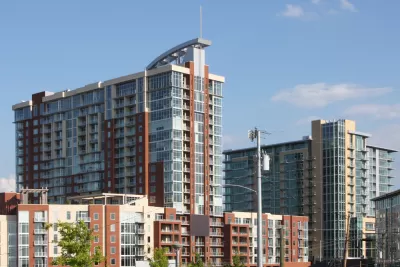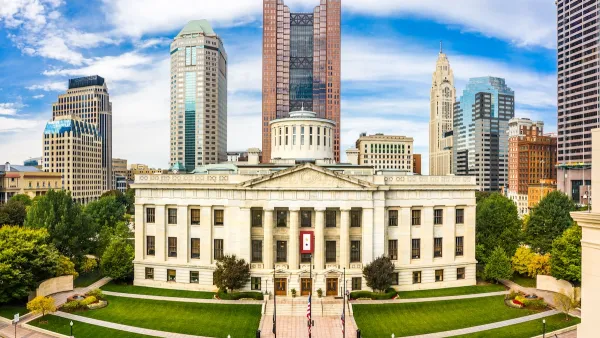A new report by the Metro Nashville Affordable Housing Task Force marshals local resources and advocates for coordination with the state and federal government to address the loss of affordable housing in Nashville.

The Metro Nashville Affordable Housing Task Force, formed by Mayor John Cooper in January of 2021, has published a report detailing nine priority actions for addressing the rising cost of housing and shrinking supply of affordable housing in the city. The report aims to achieve significant progress on the city's housing affordability challenges by 2024.
"Nashville must quadruple its current annual affordable housing production by 2030 to meet projected needs and address the city's existing affordable housing deficit, the task force estimates," according to an article by Cassandra Stephenson that shares the news of the new report's findings.
The report suggests that local, state, and federal resources will be required to fix the shortage of affordable housing in the city, but there's plenty the city can do, like "creating a dedicated affordable housing department to track affordable units in the city; better using publicly-owned land and pursuing new revenue sources like increased sales tax in the tourism zone, increased hotel tax and higher short term rental fees."
According to a press release from the Mayor Cooper's office, the city has already acted on five of the report's nine recommendations, "including a plan to triple the number of dollars allocated to affordable housing in Nashville for the coming year."
The "Affordable Housing Task Force Report" [pdf] is available to read online.
FULL STORY: How a Nashville task force wants to fix the affordable housing crisis, and what it will cost

Maui's Vacation Rental Debate Turns Ugly
Verbal attacks, misinformation campaigns and fistfights plague a high-stakes debate to convert thousands of vacation rentals into long-term housing.

Planetizen Federal Action Tracker
A weekly monitor of how Trump’s orders and actions are impacting planners and planning in America.

In Urban Planning, AI Prompting Could be the New Design Thinking
Creativity has long been key to great urban design. What if we see AI as our new creative partner?

King County Supportive Housing Program Offers Hope for Unhoused Residents
The county is taking a ‘Housing First’ approach that prioritizes getting people into housing, then offering wraparound supportive services.

Researchers Use AI to Get Clearer Picture of US Housing
Analysts are using artificial intelligence to supercharge their research by allowing them to comb through data faster. Though these AI tools can be error prone, they save time and housing researchers are optimistic about the future.

Making Shared Micromobility More Inclusive
Cities and shared mobility system operators can do more to include people with disabilities in planning and operations, per a new report.
Urban Design for Planners 1: Software Tools
This six-course series explores essential urban design concepts using open source software and equips planners with the tools they need to participate fully in the urban design process.
Planning for Universal Design
Learn the tools for implementing Universal Design in planning regulations.
planning NEXT
Appalachian Highlands Housing Partners
Mpact (founded as Rail~Volution)
City of Camden Redevelopment Agency
City of Astoria
City of Portland
City of Laramie





























